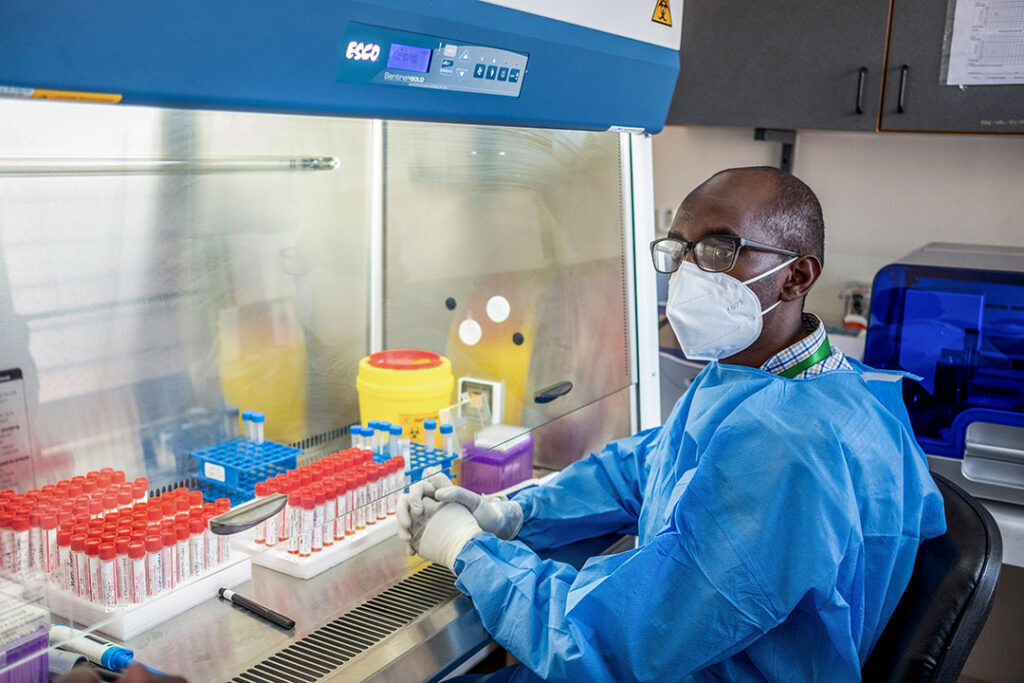ADF STAFF
Wilfred Ndifon understood the potentially devastating effects of COVID-19 in Rwanda and put his mathematical mind to work.
As director of research at the African Institute for Mathematical Sciences in Rwanda, Ndifon used an algorithm to develop a fast, effective and inexpensive method of batch testing — or pool testing — people for the potentially deadly virus. Rwanda has tested an estimated 300,000 people for COVID-19, but tests there are limited, as they are in most countries.
Negative batch tests mean everyone sampled is virus-free; positive tests indicate that each person in the testing pool should be individually tested. Experts say Ndifon’s innovative method delivers results within a day and costs less than half the typical $50.
“Another advantage of [batch] testing is that it permits detection of asymptomatic people, which leads to early management and breaks the chain of transmission of the virus,” Leon Mutesa, a member of the Rwandan government’s COVID-19 task force, told The Conversation Africa. “Because [batch] testing allows you to test many people, you can have a clearer picture of your epidemiological data profile.”
Batch testing in Rwanda is mostly done on people in markets, banks, prisons and other places where large groups gather, Mutesa said. Up to 100 people can be tested simultaneously through the process.
“It will also help to identify new infection hot spots to enable a rapid response by public health officials,” he added.
Ndifon’s batch-testing breakthrough is the latest illustration of how Rwanda uses technology in its COVID-19 response. The country uses drones to deliver tests and supplies to rural health centers, conducts nationwide cellular tracing to track COVID-19 patients and anyone they contact, and waives transaction fees on mobile payments to discourage people from using cash.
Rwanda also uses five robots in treatment centers and Kigali International Airport. Donated by the United Nations, the bots advise crowds about prevention measures and gather data for health workers to deploy interventions and resources. In treatment centers, the bots deliver medicine and food to patients.
In late August, Rwanda’s government announced plans to install automatic disinfection gates at the entrance to markets, hospitals, government offices and other public places to mitigate the spread of the virus, according to Taarifa, a Rwandan news agency. The gates feature no-touch sanitizer dispensers and take people’s temperatures and spray them with disinfectant as they pass through.
According to the Africa Centres for Disease Control and Prevention, Rwanda recorded 3,306 confirmed COVID-19 cases and 14 deaths as of August 24.
With a population of 12.6 million people, Rwanda was the first Sub-Saharan African country to enforce a lockdown. Its government urged people to practice social distancing, wear masks and frequently wash their hands even before the first case was confirmed there in March. The World Health Organization lauded the country’s prevention efforts.

